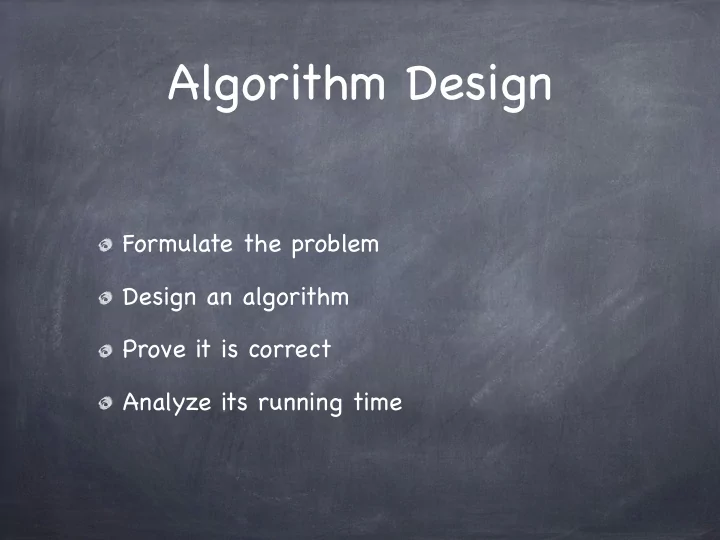

Algorithm Design Formulate the problem Design an algorithm Prove it is correct Analyze its running time
Topics we have not explored Problems not in NP: planning, chess Approximation algorithms Parallel algorithms
The Algorithmic Lens The Algorithmic Lens: How the Computational Perspective is Transforming the Sciences Christos Papadimitriou Main premise: algorithmic thinking contributes to our understanding of the world, NOT just solving problems on computers Eight vignettes about algorithmic thinking in math, physics, biology, economics and social science
Vignettes Stable Matching: match doctors to Shapley & Roth, hospitals 2012 Nobel Prize Top-Trading Cycles: match kidneys to patients Six-degrees of separation: an algorithmic perspective [Kleinberg] Why would closing Broadway improve traffic in NYC?
Braess’ s Paradox Selfish routing can hurt! x 1 Average delay Selfish: 2 0 Optimal: 1.5 1 x
Braess’ s Paradox Removing a shortcut can help! x 1 Average delay Selfish: 1.5 Optimal: 1.5 1 x
Broadway 2009: Experimental road closures in NYC reduce congestion
Price of Anarchy Theorem [Roughgarden and Tardos, 2000]: cost of selfish equilibrium ≤ 4/3 “socially optimum” cost (i.e., “Price of Anarchy” = 4/3) One example of how computational game theory is shedding light on economics
Discussion What will you see differently through the algorithmic lens? Will you use this material again? Where? What are your favorite algorithmic ideas?
Thank You!! (and please fill out evaluations!)
Recommend
More recommend